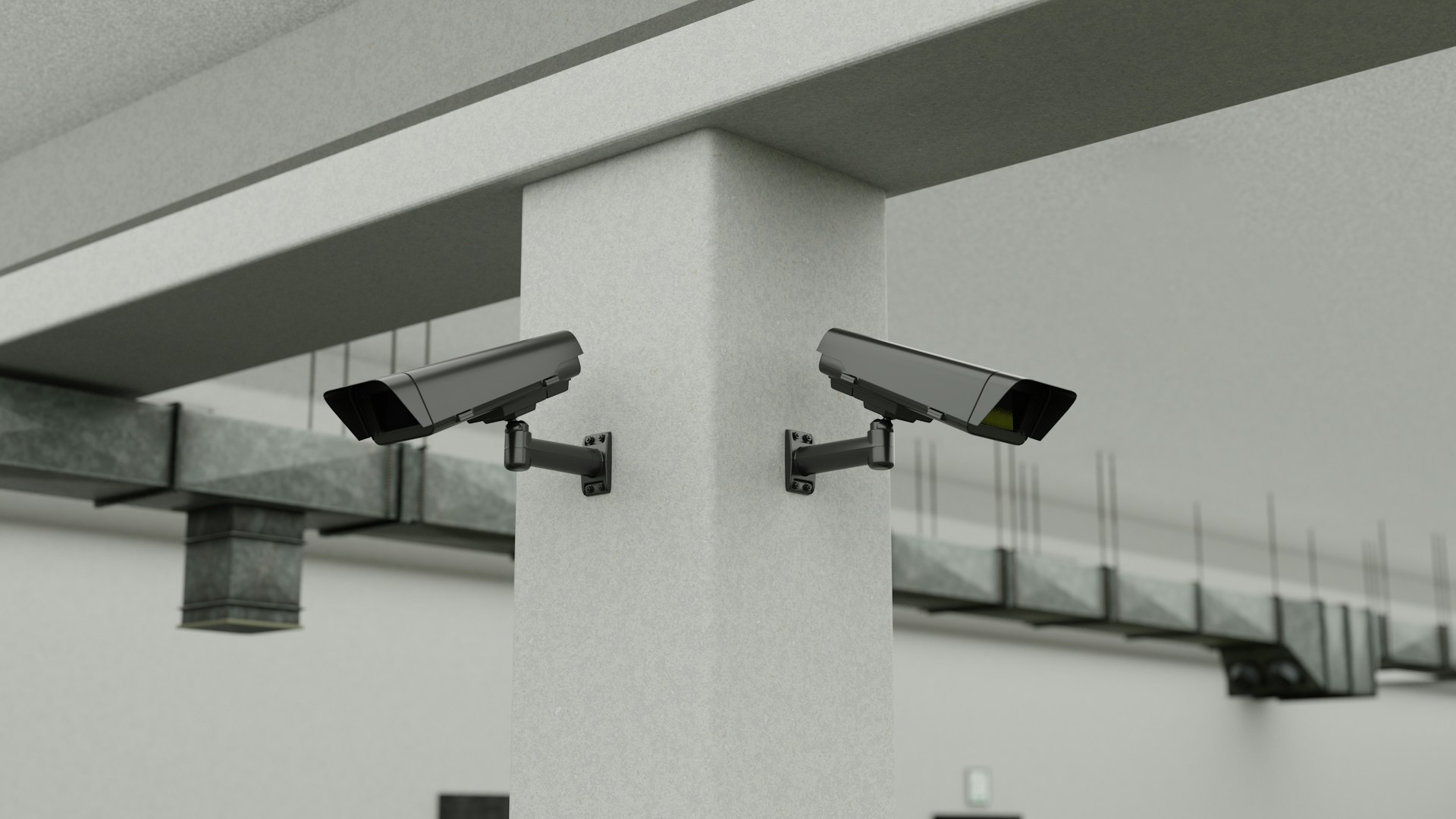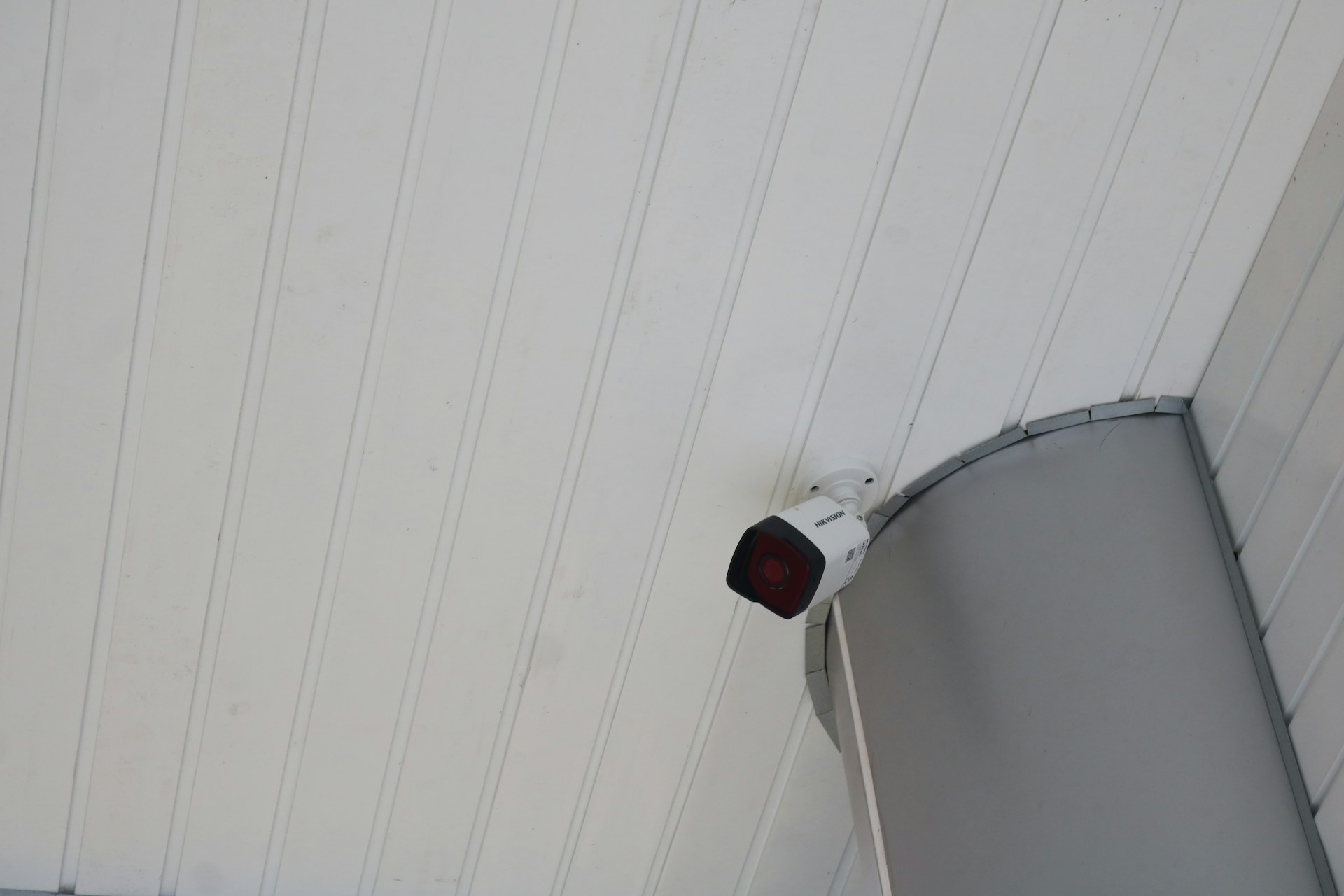Choosing the right home security system can feel overwhelming, especially with so many options available. To ensure you select a system that effectively meets your needs, focus on your specific security requirements, budget, and the types of features that matter most to you. With the right information, you can make a confident decision that protects your home and family.
You should consider factors such as installation processes, monitoring plans, equipment types, and costs when evaluating different security systems. There are various solutions tailored to the greater Houston area, providing you with local expertise and support. This targeted approach allows you to choose a reliable home security system that ensures peace of mind.
Investing in a quality home security system is crucial for protecting your property and loved ones. By understanding the key components and available options, you can make an informed choice that secures your home effectively.
Assessing Your Home Security Needs
Understanding your specific security requirements is essential for choosing the right home security system. This involves evaluating various aspects of your property to ensure you address all potential vulnerabilities and meet your safety needs.
Identifying Entry Points and Vulnerabilities
Begin by assessing all possible entry points into your home. Focus on doors, windows, garages, and other access areas. These points should be your priority because they are the most likely targets for intruders.
Make a list of these entry points and check their locks and security features. Are the locks robust? Are windows easy to slide open? Consider installing additional security measures, such as motion sensors or security cameras, especially at these vulnerable spots.
Identify any blind spots around your property where intruders could hide. Proper lighting and landscape design can mitigate these risks by eliminating hidden areas.
Considering Home Size and Layout
The size and layout of your home significantly affect your security needs. In larger homes, you may require more devices to cover the expansive space effectively. Think about surveillance cameras or alarms for each level and key areas.
Evaluate whether open floor plans create fewer barriers for potential intruders. You might need to reinforce points that provide easy access between rooms.
Small homes or apartments may have different needs. Focus more on securing primary access points and considering options such as alarms that can cover multiple areas without being disruptive.
Evaluating Safety and Lifestyle Requirements
Your lifestyle plays a crucial role in determining your home security system. Consider your daily routine, travel habits, and whether you have young children or elderly family members living with you.
If you are frequently away, a more comprehensive system with remote monitoring features could offer peace of mind. You might also want to look into smart home integrations, which allow you to manage security from your smartphone.
Prioritize features that cater to your specific lifestyle. If you often entertain guests, ensuring privacy while still keeping your home secure is vital. Choose a system that can adapt to your evolving safety needs without causing unnecessary hassle.
Key Features to Look For
When choosing a home security system, understanding the essential features is crucial for effective protection. You should consider various components, including sensors, cameras, alarms, and smart home integration. Each element significantly enhances your home's safety and convenience.
Types of Sensors (Motion, Contact, Glass Break, Environmental)
Different sensors cater to diverse security needs. Motion sensors detect movement within a designated area and trigger alarms. They are ideal for monitoring hallways and entry points. Contact sensors, placed on doors and windows, alert you when these entry points are breached.
Glass break sensors monitor the sound frequency of breaking glass, adding an extra layer of security, especially for susceptible areas. Additionally, environmental sensors like smoke alarms, carbon monoxide detectors, freeze sensors, and leak detectors help protect against hazards. Each sensor type plays a vital role in ensuring comprehensive safety.
Security Cameras and Video Surveillance
High-quality surveillance is essential for monitoring your property. Security cameras come in various types. Outdoor cameras withstand weather conditions and deter intruders visually. Indoor cameras provide surveillance for common areas and can help keep an eye on children or pets.
Video doorbells allow you to see and communicate with visitors remotely. Look for cameras that offer features such as high resolution, night vision, and two-way communication for better interaction with visitors or potential intruders. The integration of these cameras into your security system enables real-time alerts and footage access.
Alarms and Alert Capabilities
An effective alarm system must include multiple alert mechanisms. Sirens deter intruders with loud sounds, while notifications to your smartphone provide immediate alerts when a sensor is triggered. These alerts often come through a dedicated app, allowing you to monitor your home remotely.
Consider systems that offer a range of alert options, including email notifications and text messages. Moreover, some advanced systems allow for customizable alerts based on your preferences as well as settings for silent alarms in emergencies.
Smart Home Integration and Automation
Integrating your security system with smart home technology enhances convenience and control. Look for systems compatible with smart devices, enabling you to manage security settings remotely. Features like remote control through smartphones or touchscreen control panels streamline operation.
Home automation can extend to lighting, door locks, and thermostats, allowing you to create an interconnected environment. Automating responses, such as turning on lights when motion is detected, adds an extra layer of security. This integration not only improves safety but also enhances the overall efficiency of your home.
Professional vs. DIY Home Security Systems
Choosing between professional and DIY home security systems depends on your personal preferences, level of technical skill, and budget. Each option offers distinct features, installation processes, and monitoring solutions.
Understanding Professional Installation and Monitoring
With professional security systems, experts handle both the installation and monitoring. This means you benefit from their experience in placing cameras and sensors optimally.
Professional Monitoring Services:
- 24/7 Monitoring: Systems are continuously monitored for alerts.
- Emergency Services: Immediate access to police or fire services when necessary.
- Monitoring Plans: You can select various plans, often entailing monthly fees depending on the features.
Hiring professionals can be valuable, especially if you desire a comprehensive setup without the need for DIY skills. They may also provide panic buttons, enhancing your security in emergencies. Keep in mind that prices vary based on the complexity of the system and monitoring options available.
Exploring DIY Installation and Self-Monitoring Options
DIY home security systems allow you full control over installation and monitoring. These systems often come with user-friendly components, enabling you to customize your security features.
Key Features of DIY Security Systems:
- Cost-Effective: You skip installation fees, making it a budget-friendly option.
- Flexibility: Install or upgrade your system whenever needed.
- Self-Monitoring: Monitor through apps without relying on a central service.
While self-monitored systems provide autonomy, you must be proactive. Monitoring alerts and emergency responses fall solely on you. It’s essential to weigh the pros and cons carefully, particularly regarding your readiness to respond to various situations.
Comparing Top Home Security Brands and Systems
Understanding the strengths and features of leading home security brands can significantly impact your decision. Each brand offers unique systems tailored to various needs. Evaluating the differences between wired, wireless, and hybrid systems also provides clarity on what suits your home best.
Overview of Leading Brands (ADT, Vivint, SimpliSafe, Ring, Wyze)
- ADT: Established and known for professional installation, ADT provides extensive monitoring services. They offer a variety of packages, ensuring comprehensive coverage but may demand longer contracts.
- Vivint: This brand excels in smart home integration, making it ideal for tech-savvy users. Vivint's smart home systems can be controlled remotely, featuring advanced automation options.
- SimpliSafe: Known for its affordability and DIY installation, SimpliSafe offers customizable packages with no long-term contracts. Their home security system includes optional professional monitoring.
- Ring: Primarily recognized for video doorbells, Ring also offers an extensive range of security devices. The ecosystem connects easily, but their reliance on Wi-Fi can be a drawback.
- Wyze: Known for budget-friendly options, Wyze provides a selection of cameras and sensors. They are great for those seeking basic security features without breaking the bank.
Differences Between Wired, Wireless, and Hybrid Systems
- Wired Systems: Typically more reliable, wired systems require professional installation. They offer a stable connection but can be costly and challenging to install, particularly in existing homes.
- Wireless Systems: These systems are easy to install and highly flexible. They are ideal for renters or people frequently moving because they require no physical alterations. However, their reliability may be affected by weak Wi-Fi signals.
- Hybrid Systems: Combining elements of both wired and wireless systems, hybrids provide a balanced solution. This setup allows for the reliability of wired connections for vital components while utilizing wireless technology for added flexibility.
Assessing Reliability and Customer Service
When choosing a security system, reliability is crucial. Brands like ADT and Vivint have established customer support networks, offering 24/7 monitoring. Reviews often highlight ADT’s swift response times.
Customer Service varies across brands. SimpliSafe users often commend their straightforward communication and ease of access. In contrast, Ring may receive mixed reviews on customer service due to higher call volumes.
It’s essential to consider warranties provided by the brands. Many offer extended warranties, which ensures protection for your investment. Asking for detailed customer service experiences from others can also inform your choice. Pay attention to how each brand addresses concerns and resolves issues over time.
Budgeting and Total Cost Considerations
When selecting a home security system, understanding the full range of costs is vital. Your budget should account for both initial expenditures and ongoing expenses to ensure the protection you need without overspending.
Upfront Costs and Installation Fees
The initial costs can vary significantly based on the type of system you choose. Basic models may start around $200, while advanced systems with smart technology can exceed $1,000.
- Equipment Costs: This includes cameras, sensors, and alarms. Research different brands and models to find the best fit for your needs.
- Installation Fees: Professional installation typically ranges from $100 to $300, depending on the complexity of the system.
Some providers may offer free installation with a contract, so it’s essential to inquire about this when budgeting.
Ongoing Expenses and Monitoring Fees
Once installed, you’ll need to consider ongoing monitoring fees, which generally cost between $10 and $50 per month. The level of service impacts pricing; higher-tier plans usually include:
- 24/7 professional monitoring
- Emergency response services
- Mobile app access
Evaluate the different monitoring options available. Some companies may also provide discounts for annual payments, which can help you save money in the long run.
Warranty, Insurance, and Potential Savings
Many systems come with warranties ranging from one year to a lifetime. A solid warranty can cover repairs or replacements, providing peace of mind.
Home insurance may also offer savings. Installing a security system can reduce your home insurance premiums, making it a financially sound decision. When shopping for coverage, ask about potential discounts due to your security measures.
By thoroughly understanding these cost factors, you can effectively budget for and choose a home security system that meets your specific needs.
Smart Home Security and Integration
Integrating your home security system with smart home technology enhances convenience and overall security. This section explores compatibility with smart-home devices, the mobile app experience, voice control, and privacy considerations regarding video storage.
Compatibility With Smart-Home Devices
When selecting a smart home security system, compatibility is key. Look for systems that easily integrate with a variety of smart home devices like smart locks, cameras, and sensors. This flexibility enables you to create a cohesive smart home network.
Check if the system works with popular platforms such as Amazon Alexa and Google Assistant. Seamless integration allows you to control devices through voice commands, making your security system more user-friendly.
Additionally, consider how the system connects to your home’s Wi-Fi network. A strong and stable connection is crucial for ensuring that all devices communicate effectively, providing real-time alerts and updates. Some systems even offer cellular backup and battery backup options to maintain functionality during outages.
Mobile App Experience and Remote Control
The mobile app experience significantly impacts how you interact with your home security system. A well-designed app should be intuitive and easy to navigate, allowing you quick access to features like arming or disarming the system, checking live video feeds, and managing smart locks.
Look for apps that offer push notifications for security alerts, enabling you to stay informed about any unusual activity. The ability to customize notifications can help you prioritize what’s important for your home security.
Also, consider the remote control capabilities of the app. You should be able to lock doors, view security camera footage, and receive prompts when the system detects motion. Effective mobile control enhances your peace of mind, especially when you are away from home.
Voice Control and Assistant Support
Voice control adds another layer of convenience to your home security system. By integrating with voice assistants like Amazon Alexa or Google Assistant, you can manage your security system hands-free.
Check if your chosen system supports voice commands for tasks such as viewing camera feeds and locking doors. This feature is valuable when your hands are full or when you're in another room.
You should also evaluate the responsiveness of voice commands. Systems that can quickly execute your requests enhance your overall experience. Assistant support should be reliable and consistent for added security functionality.
Cloud Video Storage and Privacy Considerations
Cloud video storage is a common feature in modern home security systems but comes with privacy considerations. When choosing a system, investigate the subscription plans for cloud storage to ensure they meet your needs for visual verification.
Look into the company’s privacy policies. Ensure they provide adequate protection for your information and video footage. Understand how long videos are stored and what options you have for managing this data.
Consider also security features like end-to-end encryption, which safeguards your video uploads. This ensures that only you have access to your footage, maintaining your privacy while still enjoying the benefits of cloud storage.
Frequently Asked Questions
Choosing a home security system involves understanding various aspects, including features, cost-effectiveness, and reliability. Below are common queries that will help you make informed decisions regarding your home security needs.
What should I look for when selecting a home security system with cameras?
When selecting a security system with cameras, prioritize resolution and field of view. High-definition video is essential for clear images, while a wide field of view provides better coverage.
Consider features like motion detection and night vision. These capabilities enhance the system's effectiveness by ensuring you capture events at all times.
Which home security systems offer the best value without requiring a subscription?
Several systems provide great value without ongoing subscription fees. Look for brands that offer self-monitoring options.
Evaluate packages that include multiple features upfront, such as video storage or smart home integration. These can save you money while ensuring comprehensive security.
How do I determine the most trustworthy home security systems on the market?
Research customer reviews and ratings to identify reliability. Look for systems with a strong reputation for both product performance and customer service.
Check if companies have industry certifications or affiliations. This can indicate they adhere to high standards in security technologies.
What are the advantages of a professional home security system over a DIY solution?
Professional systems typically offer 24/7 monitoring and expert installation. This can provide peace of mind, knowing that your home is constantly monitored.
Additionally, if an alarm is triggered, professionals can respond quickly. DIY systems may lack this level of immediate support, depending on your chosen setup.
What key features differentiate the best home security camera systems available?
Top camera systems include features such as two-way audio, allowing you to communicate through the device. Look for systems with cloud storage to ensure your recordings are safe.
Integration with smart home devices is another significant advantage. This allows you to control and monitor cameras from various platforms seamlessly.
Can you compare wired and wireless home security systems in terms of reliability and cost?
Wired systems tend to offer more stable connections and are less susceptible to interference. However, installation can be more complicated and costly due to wiring needs.
Wireless systems are easier to install and can be more cost-effective. Yet, ensure you have a reliable internet connection to maintain functionality and avoid interruptions.
.svg)



.svg)


.svg)



